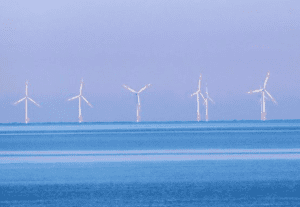Alan Cole of Full Stack Economics makes a critical point that is plaguing our ability to mine our domestic resources in the U.S. as well as numerous other industries. In his article, “Why American Can’t Build Quickly Anymore,” Cole states:
“In a 2018 study of environmental impact statements under National Environmental Policy Act regulations (NEPA,) the mean statement took 4.5 years to complete – about as long as it took to complete the original 28-station New York City subway back in 1904 – and ran 575 pages.”

He explains here:
“Review systems are supposed to weigh costs and benefits, and then help you make the best possible choice. They aren’t binding; they don’t force the government to act one way or another. Let’s say, for the sake of argument, that they get their object-level cost-benefit analysis generally correct.
“There’s still a meta-level tradeoff, between acquiring more information and the costs of acquiring that information. The reports aren’t free. And more importantly, time isn’t free. The longer a project takes, the more it’s likely to cost, and the more land, efforts, and resources are tied up in a partially-completed project not yet bearing fruit. The longer a project takes, the more likely some aspect of the plan becomes obsolete or unfeasible midstream. And the longer a project takes, the later it begins to benefit people.
“Additional pages of environmental paperwork are only valuable to the extent that they actually help change material decisions for the better, and only if the improvements they facilitate are more valuable than the time lost and the resources spent on the report.
“It is obviously fair for authorities to take some time to plan things out and weigh the costs and benefits. But they spend, well, an inordinate amount of time weighing the costs and benefits. In a 2018 study of environmental impact statements under NEPA, the mean statement took 4.5 years to complete—about as long as it took to complete the original 28-station New York City subway back in 1904—and ran 575 pages.
“Here’s a thought experiment for you, one in what economists call thinking at the margin: take a 575-page report, and rank the pages from most valuable to least. How likely is it that the 500th- or 540th- or 572nd-most valuable page makes a material impact on your choices?”
Read his entire commentary here.




